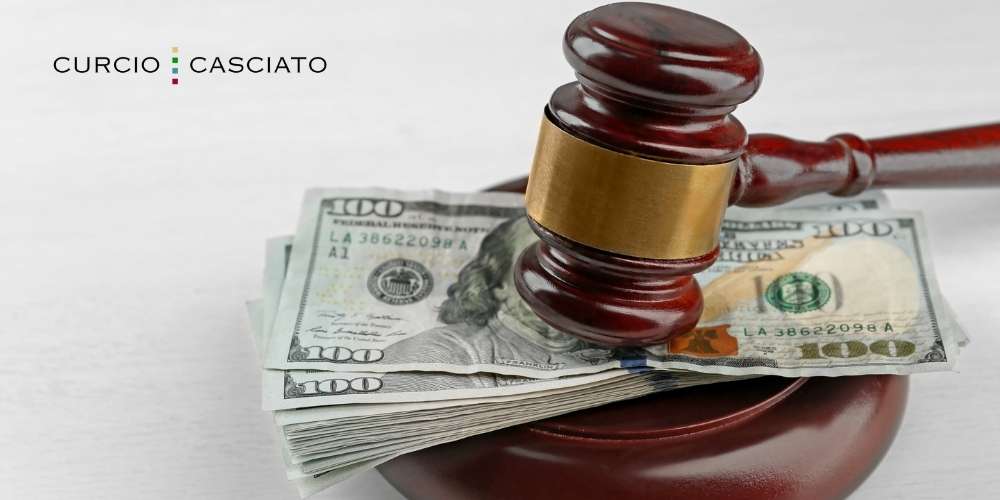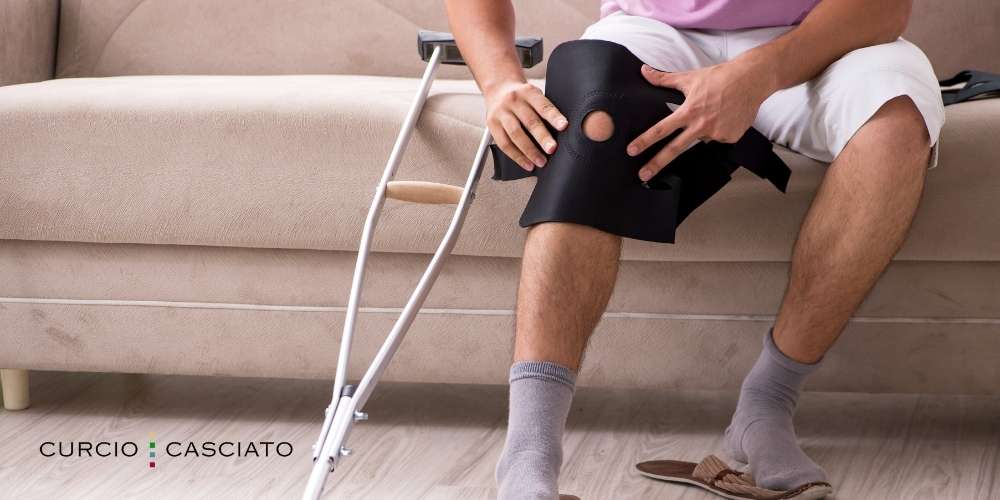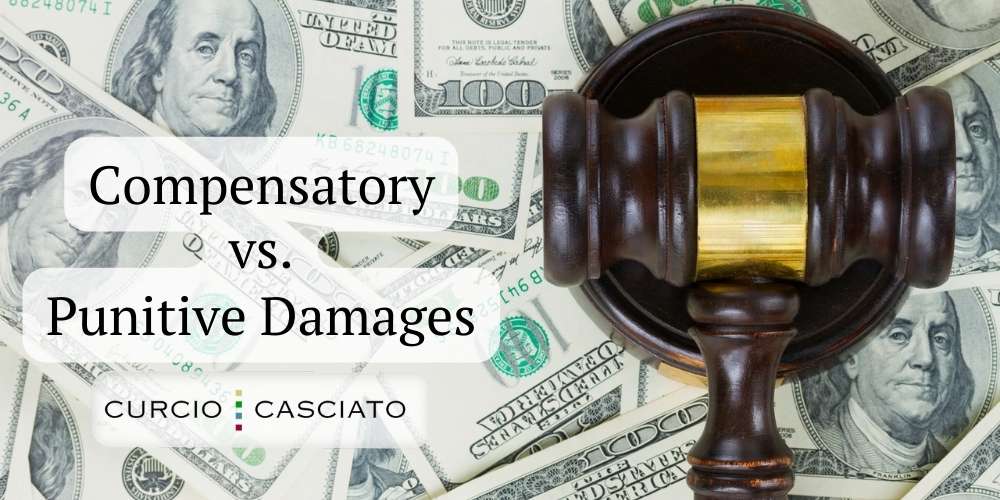Compensatory vs. punitive damages: When pursuing a personal injury claim, it’s essential to understand the difference between compensatory and punitive damages. As your dedicated Chicago personal injury lawyers, we can clarify these distinctions. Compensatory damages aim to reimburse the injured victim for actual losses incurred due to the accident, such as medical expenses, lost wages, and pain and suffering. On the other hand, punitive damages are intended to punish the guilty party for egregious behavior and deter future misconduct. At Curcio & Casciato, we offer a no-obligation consultation to discuss your case, and we operate on a contingency-fee-basis, meaning you pay no upfront fees, and we only collect payment if we secure compensation for you. We understand the complexities of the legal system and will work tirelessly to ensure you receive the compensation you deserve to cover your damages and any associated litigation costs.
To explore your legal options and seek the compensation you deserve, call 312-321-1111 to schedule a free no no-obligation consultation at Curcio & Casciato today.

What Are Compensatory Damages in a Personal Injury Lawsuit?
Compensatory damages play a pivotal role in personal injury claims, serving as a means to address the losses incurred by injury victims due to someone else’s negligent behavior or wrongful actions. These damages encompass two main categories: general and special damages.
Essentially, compensatory damages awarded strive to make injury victims whole again by providing financial relief that corresponds to both their tangible and intangible suffering, ensuring they can recover after a major accident caused by negligence.
General Damages
General damages, also known as non-economic damages, are designed to compensate the injured party for intangible losses that are not easily quantifiable. General damages may include:
- Physical pain and suffering,
- Emotional distress,
- Loss of enjoyment of life,
- Scarring and disfigurement,
- Loss of consortium,
- And permanent disability.
General damages aim to provide fair compensation for the overall impact of the injury and the intangible harm it caused upon the victim’s life beyond just the economic aspects.
General damages are much harder to quantify than special damages because they generally don’t have monetary value. So, if you’re wondering how to calculate pain and suffering and other non-economic damages, working with an experienced Chicago personal injury attorney at Curcio & Casciato is crucial.

Special Damages
Special damages, also known as actual damages, are more concrete and specific. Actual damages are intended to compensate the injured party for actual monetary losses incurred as a direct result of the injury. Common examples of special damages or actual losses may include:
- Medical expenses (including past and future costs),
- Physical therapy expenses (including past and future expenses),
- Medical costs associated with prosthetics, mobility devices, and other assistive devices,
- Home modifications (if the incident results in permanent disability),
- Caregiving costs,
- Mental health counseling,
- Lost wages,
- Property damage,
- And any other actual expenses associated with the incident.
Unlike general damages, special damages are quantifiable and can be supported by physical evidence such as medical bills and pay stubs. Still, calculating lost wages and other types of financial losses in a personal injury claim can get complicated, which is why it’s so important to hire strong Chicago personal injury lawyer from Curcio & Casciato.
When Are Compensatory Damages Awarded?
Compensatory damages are typically awarded in personal injury cases when the injured party can demonstrate that they have suffered actual harm as a result of someone else’s negligence or wrongful actions. Compensatory damages awarded aim to make the injured party “whole” again by providing financial relief that corresponds to the losses incurred.
Common examples of a personal injury claim that warrant compensatory damages include:
- Car accident cases,
- Medical malpractice cases,
- Birth injury cases,
- Nursing home abuse and neglect cases,
- Premises liability cases,
- Product liability cases,
- Wrongful death cases,
- And more.

What Are Punitive Damages in a Personal Injury Lawsuit?
In contrast to compensatory damages, punitive damages serve a different purpose in personal injury lawsuits. Punitive damages, also known as exemplary damages, are not intended to compensate the injured victim for their losses but rather to punish the at-fault party for their reckless or grossly negligent behavior. So, the negligent party will also pay punitive damages or exemplary damages to the victim in addition to the compensatory damages they receive. Punitive damages are also meant to deter the wrongdoer and others from engaging in similar wrongful behavior in the future.
When Are Punitive Damages Awarded?
A judge won’t award punitive damages in every personal injury claim. Judges will typically only award punitive damages to punish defendants when the defendant exhibits particularly egregious conduct that involves malice or a wanton disregard for the safety of others. The purpose of having defendants pay punitive damages is to purely punish defendants and send a message that such behavior will not be tolerated in society. So, hopefully, punitive damage awards can serve as a deterrent against future wrongdoing.
Compensatory Damages vs. Punitive Damages
The differences between compensatory and punitive damages lie in their purpose and nature. Compensatory damages are designed to provide financial relief to the injured party and make them whole again by compensating them for their losses, both tangible and intangible. These damages are about restoring the victim’s life as much as possible to its pre-injury state.
On the other hand, punitive damages are punitive in nature. They are not meant to compensate the victim but to punish the wrongdoer. Punitive damage awards occur in civil court cases where the defendant’s conduct is considered so reprehensible that additional measures beyond compensatory damages are warranted to deter future misconduct.
Understanding the differences between compensatory and punitive damages is critical for calculating personal injury settlements.

Can You Recover Compensatory and Punitive Damages in a Personal Injury Lawsuit?
In some cases, it is possible to recover both compensatory and punitive damages simultaneously in personal injury claims. However, receiving compensatory and punitive damages typically occurs only when the circumstances of the personal injury claim justify punitive damages.
It’s important to note that the availability of punitive damages varies from state to state and may also depend on the specific facts of the case. Some states have limits on the amount a judge can award punitive damages, while others may have no caps. An experienced personal injury lawyer at Curcio & Casciato can help you understand whether punitive damages may be applicable in your personal injury claim.
Chicago Personal Injury Lawyers
If you or a loved one has been injured due to someone else’s negligence or intentional misconduct, it’s crucial to seek legal representation from experienced personal injury attorneys who can help you understand your rights and options. The team at Curcio & Casciato in Chicago, IL, is dedicated to advocating for the rights of injured individuals and helping them obtain the monetary award they deserve.
Contact Curcio & Casciato at 312-321-1111 today to schedule a free consultation and discuss your personal injury case. Our experienced attorneys will work tirelessly to ensure you receive the fair compensation you are entitled to, whether it’s compensatory damages to cover your losses or, in some cases, punitive damages to hold the wrongdoer accountable for their actions. We are here to fight for your rights and provide you with the legal support you need during this challenging time.



